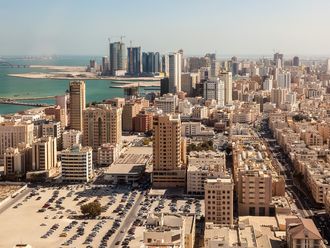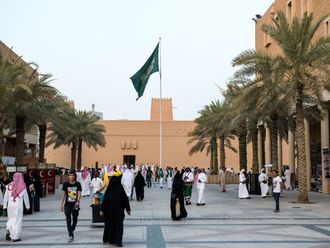Manama: Bahrain’s foreign minister said that sectarianism was the country’s most ominous enemy.
“Sectarianism is the biggest enemy to Bahrain,” Shaikh Khalid Bin Ahmad Al Khalifa posted on his Twitter account. “Do not waste your time pointing an accusing finger at others. Do assume your responsibilities and fight off sectarianism,” he said, addressing the opposition after they issued a statement rejecting what they called a security solution.
The lower and upper chambers of the bicameral parliament issued a statement that included 22 recommendations to help “halt the mounting acts of violence and business disruption”.
The MPs called for stiffening laws against those who incite or perpetrate acts of terror or commit crimes of violence and terror in any form. Recommended actions included stripping Bahraini citizenship on national security grounds, a ban on rallies in the capital Manama and tougher legal procedures.
The opposition, led by Al Wefaq, said that Bahrain needed a peaceful solution to its issues and that the parliament should not have opted for the security solution and made the recommendations taken up, later, by the government.
However, Shaikh Khalid said that maintaining security was the country’s top priority. “Characterising the recommendations as a security solution is a big mistake and an incorrect interpretation,” he said. “Maintaining security is among the top priorities of the state, just like education, health and housing.” The minister said that maintaining security was in the interest of all citizens and that no one or segment of the society is excluded.
“Our duty, all of us, is to confront terrorism and scaremongering in words and deeds,” he said. The minister who defines himself as “Reader, World traveller and Bon Vivant” has 146,886 Twitter followers.
Bahrain has been hit by a wave of unrest since the dramatic events that occurred in February and March 2011. The society has since been divided over the merit and purpose of the events, often alongside sectarian faults.
A new round of talks within a national dialogue to help address political divisions was launched on February 10, but the 27 delegates from two political alliances, including the opposition, the parliament and the government have yet to agree on a platform and on an agenda. The talks will resume in August after the end of Ramadan and the Eid celebrations.












